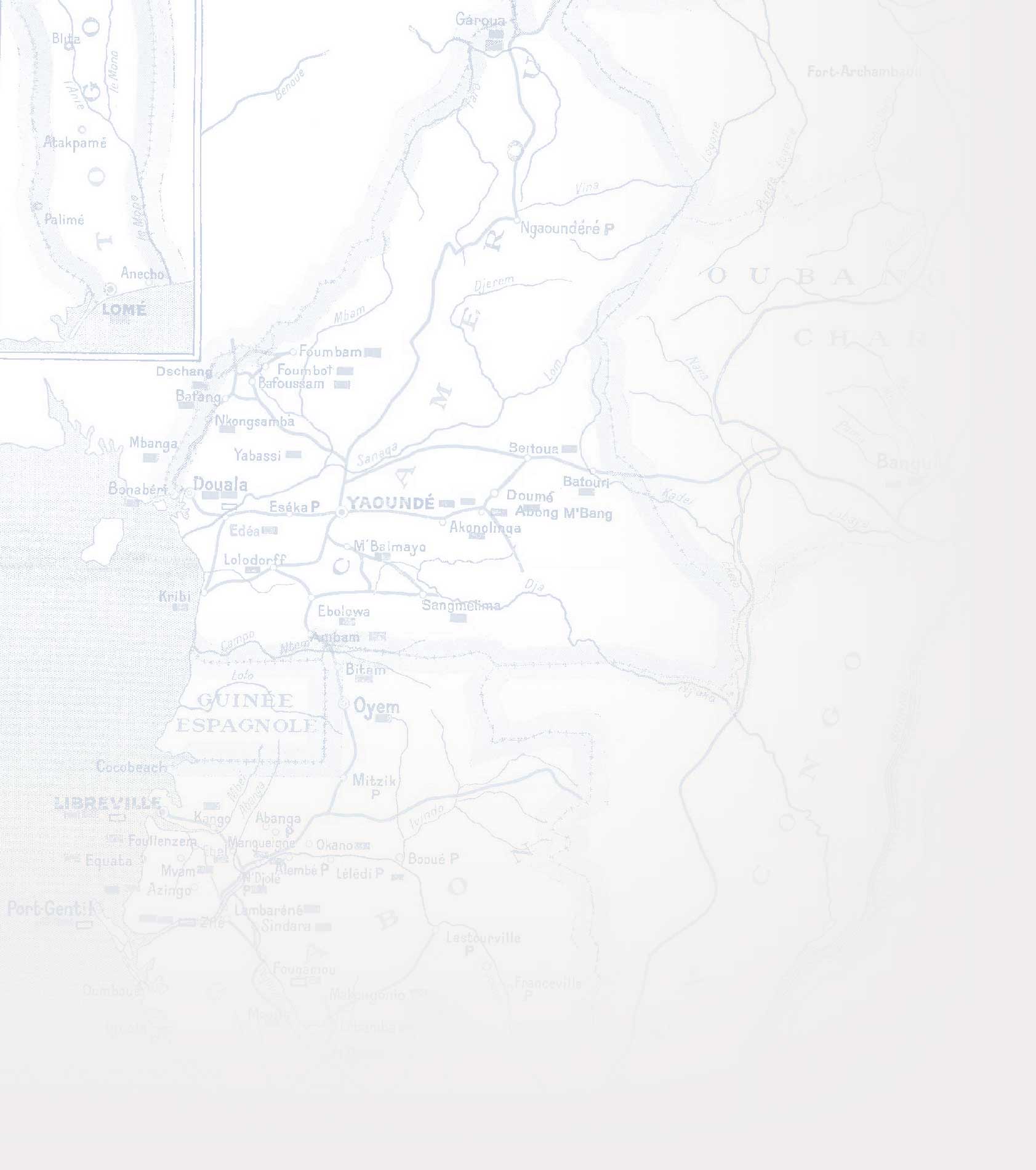

OPTORG,
Africa, the land of preference
Although Optorg is active in many different countries during the founding years, Africa becomes the homeland from 1947 onwards. During this time Optorg develops a highly developed knowledge of industry and the population’s needs and focuses on establishing its activities to serve the continent’s economic development.
ROOTS OF THE AFRICAN DESTINY
The Indochina war in 1946 leads Optorg to look towards a new continent. The beginning of the African operation is marked by the acquisition of stakes in two companies by the group: SHO in Central Africa and Établissements Ch. Peyrissac in West Africa.
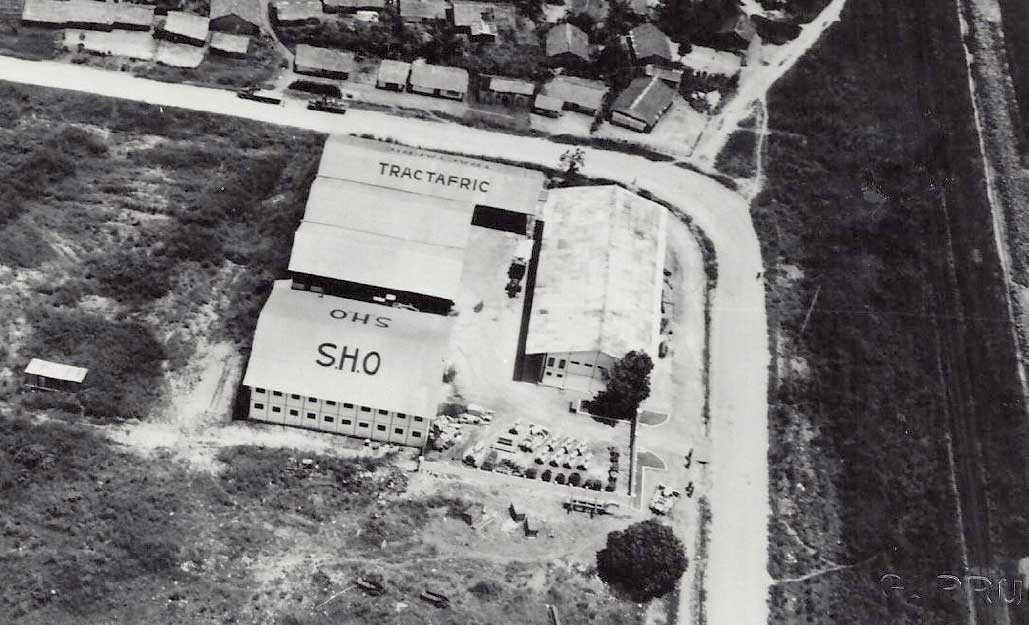
SHO (Trading, Industrial and Agricultural Company of Haut-Ogooué) is one of the oldest concessionary companies in Equatorial Africa. Its activities cover forestry, river transport, distribution of civil engineering and forestry equipment, vehicle distribution, hardware and industrial trade.
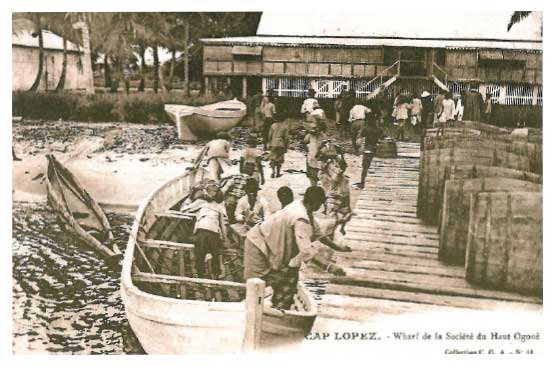 SHO company wharf, postcard printed by SHO.
SHO company wharf, postcard printed by SHO.

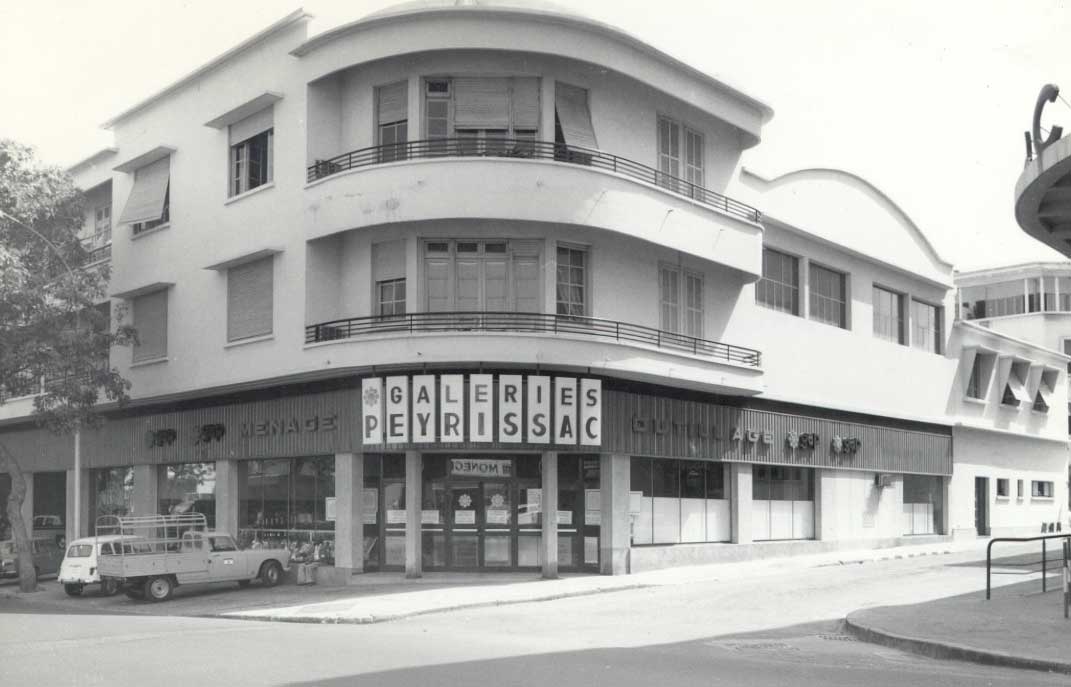 Galeries Peyrissac, Senegal.
Galeries Peyrissac, Senegal.
Établissements Ch. Peyrissac are an old family business founded in Bordeaux in 1872, originally specialized in the sale of basic goods and purchase of local production from Senegal. It subsequently develops its business all over West Africa, importing capital goods and is also active in car manufacturer representation and sales of motorcycles and bicycles.
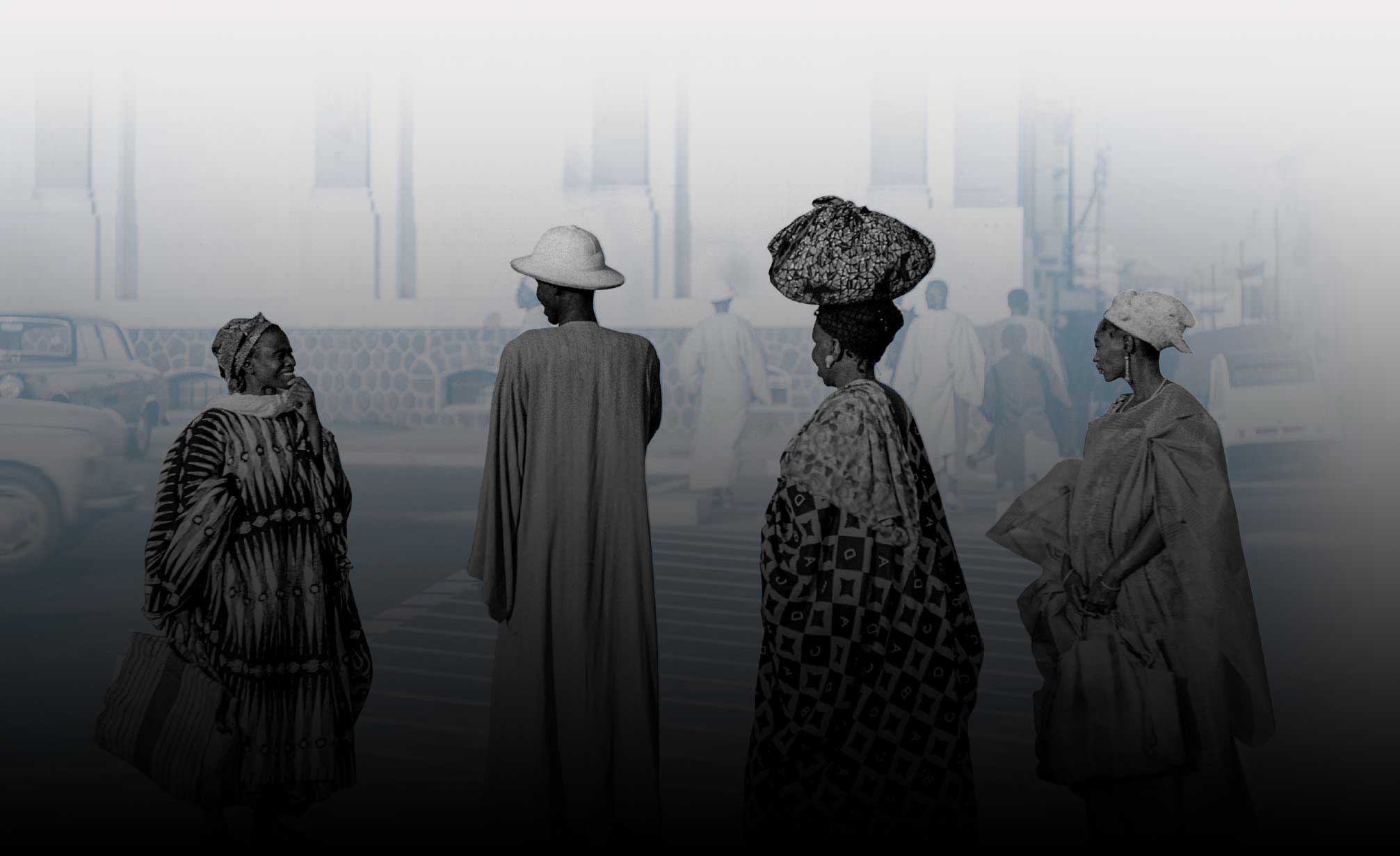
INTEGRATED IN LOCAL ECONOMIES
 Tractafric Douala training centre (Cameroon), practical and theory training for teams in the 70’s.
Tractafric Douala training centre (Cameroon), practical and theory training for teams in the 70’s.
Africa rapidly becomes one of the main zones of activity for the group. Optorg investments are driven by an ambition to participate in the development of the country it is operating in.
AFRICAN INSIDE
The decade from 1970-1980 sees the fast-tracking of African executives into management teams. In 1988, African group executives amount to 55% in comparison to 16% in 1974.




"We must be aware of the responsibilities that accompany our role in the economies of the African states, which implies providing Africans with every opportunity for training and rapid ascension to the highest ranks of in our business."
1971 Optorg Activity Report.
UFIDA, A TOOL FOR ECONOMIC DEVELOPMENT
In 1962, Optorg participates in the creation of the International Financial Union for the Development of Africa (UFIDA), its ambition is to facilitate foreign private investment in Africa. In less than 10 years, about 100 projects are reviewed and over 50 billion CFA francs invested in the industrialization of the continent, including cement works in Cameroon, banana-packing installations in the Ivory Coast and a meat factory in Senegal.

A VISIBLE CONTRIBUTION
Between 2014 and 2017, materials sold by Optorg in Central Africa and Morocco account for a construction capacity of 8,000km of roads and tracks, of 4,000km of pipelines (water, gas, petrol…). Vehicles sold in Central and Western Africa represent a transport capacity of over 3 million passengers, 900 million litres of fuel, 3 million square metres of wood and over 2.5 million square metres of soil.

A NEW DIMENSION
In 1993, the Optorg takeover by an important Moroccan player provides a further boost to the group’s African integration. The company merges in 2010 with the SNI, to become Al Mada in 2018. Today, Optorg operations cover over half of the African continent.
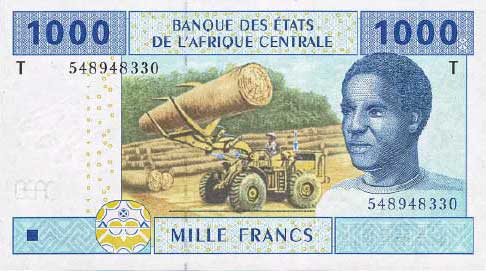
CFA franc banknote showing a CAT construction truck.
90%
In the 90’s, Optorg is the third biggest French trading company, making 90% of its turnover in Africa.
"Africa is Optorg’s natural market."
Jean-Jacques Delort, CEO of ONA International, Chairman of the Optorg Supervisory Board, in 1996.
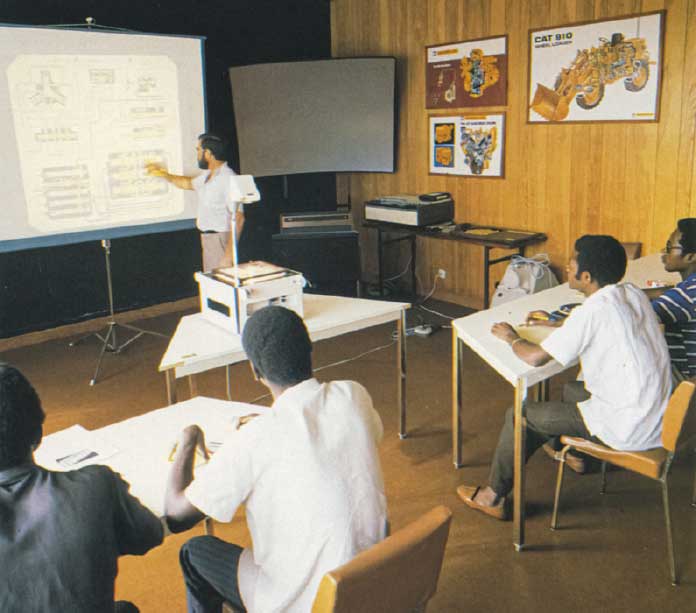
TRAINING: A HISTORIC ROLE
Working with Optorg enables the workforce and clients to develop their skillsets. The products sold require advanced technical know-how, training sessions deal with technical and commercial aspects, preventative maintenance and also IT and management tools.


